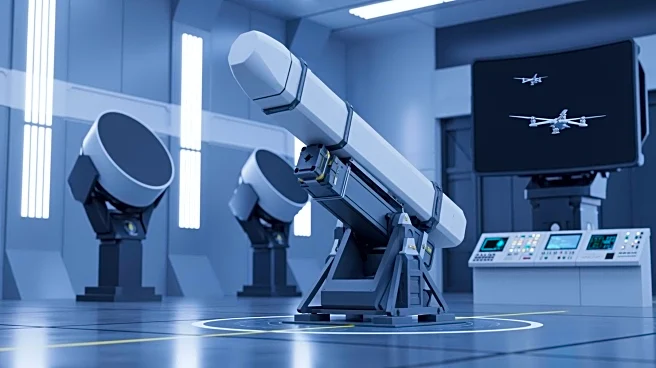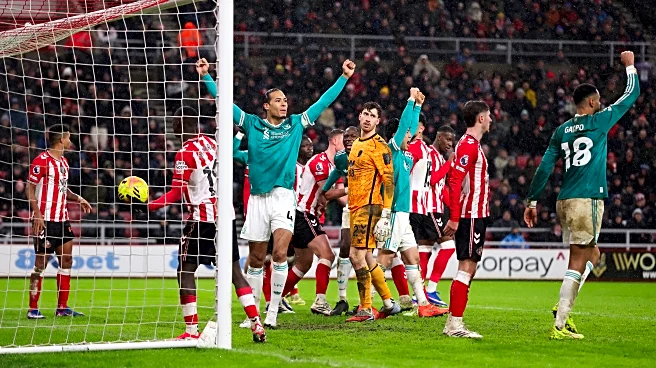What's Happening?
Recent incursions by Russian drones into Polish airspace have prompted European leaders to consider establishing a 'drone wall' to counter such threats. However, experts argue that the real issue lies
in the erosion of nuclear and conventional deterrence, not the drones themselves. The current geopolitical environment has emboldened Russia to test NATO's political will, raising questions about the effectiveness of existing deterrence strategies. The focus on drones may divert resources from more critical defense priorities, such as enhancing Europe's ability to retaliate against Russian aggression.
Why It's Important?
The erosion of deterrence poses a significant threat to European security, as it undermines the foundational principles of NATO's defense strategy. If Russia perceives a lack of commitment from the U.S. to NATO's Article 5, it could exploit this perceived weakness, increasing the risk of conflict. Strengthening deterrence by investing in offensive capabilities could reinforce NATO's defense posture and deter Russian aggression. This approach would also demonstrate Europe's commitment to its own defense, potentially strengthening transatlantic relations and ensuring a more robust collective security framework.
What's Next?
Europe is encouraged to invest in long-range strike capabilities and other military assets that would enable it to respond effectively to Russian provocations. By doing so, Europe can bolster its deterrence posture and reduce reliance on purely defensive measures. Collaborative efforts with the U.S. to develop cost-effective counter-drone technologies are also recommended. These steps could reassure NATO allies of Europe's commitment to collective defense and deter further Russian aggression.
Beyond the Headlines
The focus on drones may obscure the broader strategic challenges posed by Russia. While drones are a concern, the real issue is the potential weakening of NATO's deterrence framework. By addressing this, Europe can better prepare for a range of threats, including those posed by non-state actors and covert operations. Strengthening deterrence could also have long-term implications for European security policy, encouraging a shift towards more proactive defense strategies.










